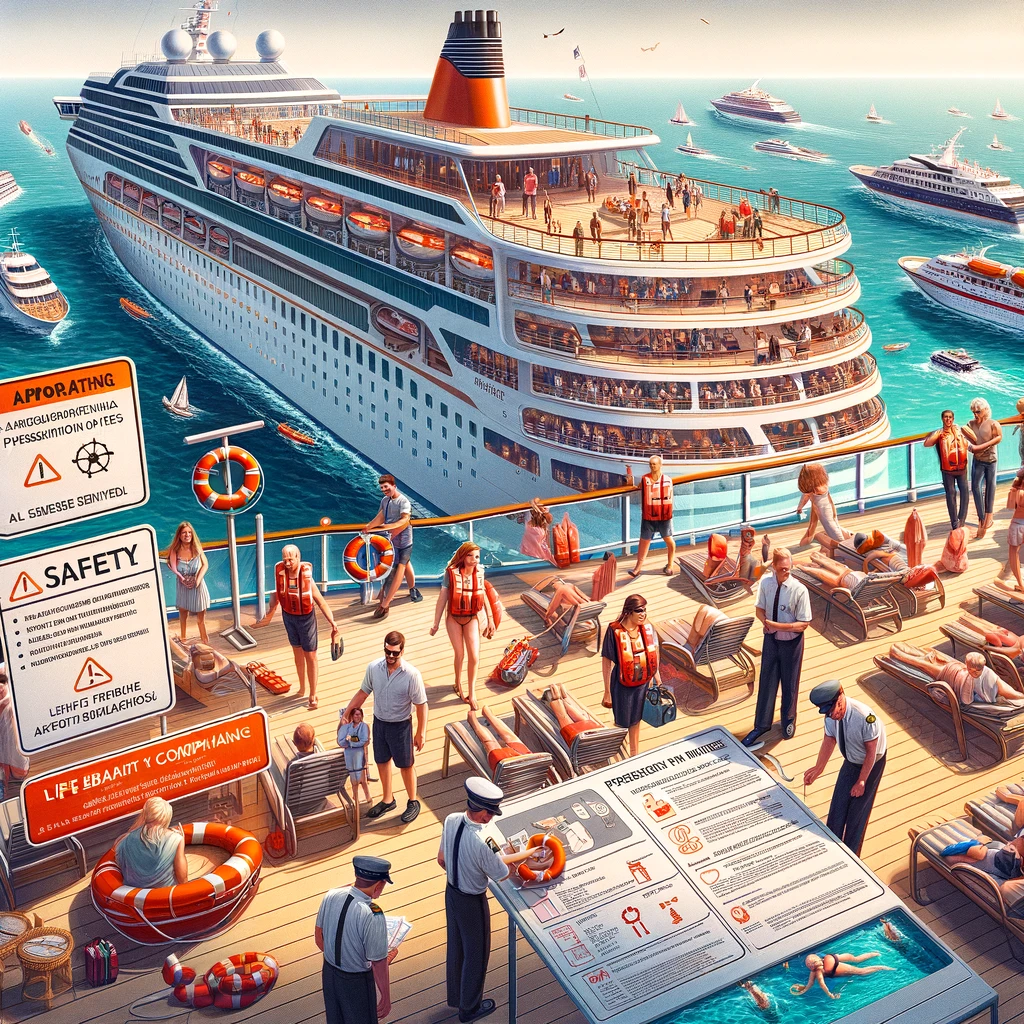Cruise ship passengers have a number of rights and protections under federal and international law.

These rights include the right to safety, the right to be treated fairly, and the right to be compensated for any losses or damages they suffer.
Ship passenger rights
- The right to safety: Cruise ship operators are responsible for the safety of their passengers. This includes providing adequate lifeboats and other safety equipment, as well as training crew members on how to use it.
- The right to be treated fairly: Cruise ship operators must treat all passengers fairly, regardless of their race, religion, nationality, or disability. This includes providing equal access to facilities and services.
- The right to be compensated for losses: If a passenger is injured or loses property on a cruise ship, they are entitled to be compensated for their losses. The amount of compensation will depend on the specific circumstances of the case.
Who is responsible for the safety of the passengers in cruise ship?
The cruise ship operator is ultimately responsible for the safety of its passengers. This includes taking steps to prevent accidents and injuries, as well as responding to accidents and injuries that do occur.
The cruise ship operator may also be held liable for the negligence of its employees. For example, if a crew member fails to properly secure a ladder, and a passenger falls and is injured, the cruise ship operator may be liable for the passenger’s injuries.
What is the responsibility of passengers on cruise ships?
Passengers also have a responsibility to take reasonable steps to protect their own safety. This includes following the instructions of the crew, and being aware of the risks associated with cruise ship travel.
For example, passengers should not climb over railings, or swim in areas that are not designated for swimming. They should also be aware of the dangers of fire and other emergencies, and know how to respond to them.
What is cruise passenger Bill of Rights?
The Cruise Passenger Bill of Rights is a set of guidelines that outlines the rights and responsibilities of cruise passengers. The Bill of Rights was developed by the Cruise Lines International Association (CLIA), and it is intended to help passengers understand their rights and make informed decisions about their cruise vacation.
The Cruise Passenger Bill of Rights includes the following provisions:
- The right to safety
- The right to be treated fairly
- The right to be compensated for losses
- The right to information about the cruise
- The right to cancel the cruise
- The right to a refund
What happens if someone gets left behind on a cruise?
If a passenger is left behind on a cruise ship, they should immediately contact the cruise line. The cruise line will typically arrange for the passenger to be taken back to the port of embarkation.
The passenger may also be entitled to compensation for their expenses, such as the cost of transportation and accommodation. The amount of compensation will depend on the specific circumstances of the case.
Legal Framework and Grievance Procedures
Governing Laws and Regulations
Cruise ship operations, including passenger rights and safety, are governed by a combination of international conventions, such as the International Convention for the Safety of Life at Sea (SOLAS), and national laws of the countries where the ships are registered. These laws set stringent standards for ship construction, safety equipment, crew training, and emergency procedures.
Grievance and Claim Procedures
- Onboard Reporting: Passengers should immediately report any incidents or concerns to the ship’s staff or officers. Most cruise lines have protocols for documenting and addressing passenger grievances onboard.
Formal Complaints: If the issue is not resolved satisfactorily onboard, passengers can file a formal complaint with the cruise line. Details of the grievance procedure are typically provided by the cruise line, and passengers should follow these procedures for official documentation and investigation of their claims.
Legal Claims: In cases of serious incidents, passengers may seek legal recourse. This could involve filing claims for negligence, breach of contract, or other liabilities against the cruise line. Passengers considering legal action should consult with an attorney who specializes in maritime law to understand their rights and the applicable statutes of limitations.
